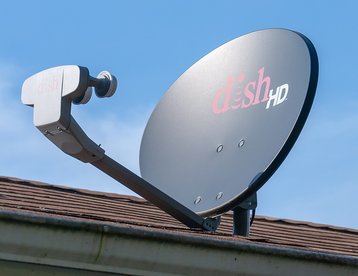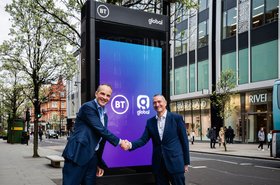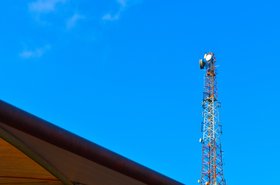EchoStar's financial woes continued as the company reported subscriber losses across the main areas of its business — wireless, broadband, and pay TV.
The company ended Q1 with a net loss of $107.38 million, compared to net income of $253.53m the year previous.
The company's situation has become so dire that a senior industry analyst is worried for the firm's future.
"The bottom line is that we now see bankruptcy in the next four to six months as the most likely outcome,” said Craig Moffett, senior managing director at MoffettNathanson Research, in a report for investors.
During the quarter, EchoStar lost 81,000 Boost Mobile prepaid phone customers, ending the quarter with 7.3 million subscribers on its network.
The company reported losses of 26,000 broadband subscribers and 348,000 pay TV.
EchoStar completed its merger with Dish Network earlier this year, reuniting the two companies.
EchoStar was spun out from Dish back in 2008. The split saw Dish retain its TV business while it shed the satellite infrastructure that beamed content into them. Both companies are owned by billionaire Charles Ergen.
In its latest financials, EchoStar, which is the parent company of Dish, acknowledged its financial woes.
“Substantial doubt exists about our ability to continue as a going concern. We do not currently have the necessary cash on hand and/or projected future cash flows to fund fourth quarter operations or the November 2024 debt maturity.”
During an earnings call this week, EchoStar CFO and EVP Paul Orban said that the company needs to pay off $2 billion in maturing debt on November 24.
"We do not currently have the necessary cash on hand and/or projected future cash flows to fund fourth quarter operations or the November 2024 debt maturity," he said.
"To address our capital needs, we are in active discussions with funding sources to raise additional capital. We cannot provide assurances that we will be successful in obtaining such new financing necessary for us to have sufficient liquidity. Further, if we are not successful in these endeavors, then capital expenditures to meet future FCC build-out requirements and wireless customer growth initiatives will be adversely affected."
EchoStar noted that it will struggle to raise more funding, as it can't sell any spectrum assets until 2026.
In March, Dish said it couldn't pay for T-Mobile's 800MHz spectrum that it had agreed to purchase for $3.59bn.
Dish had been granted an extension until April 1, paying a $100 million extension fee.
As part of T-Mobile's merger and acquisition of Sprint in 2020, the operator agreed to sell its 800MHz spectrum to Dish.
Dish did meet its 5G coverage target set by the Federal Communications Commission (FCC) last year, delivering its 5G service to 70 percent of the US population.







